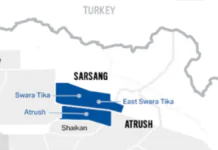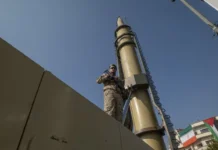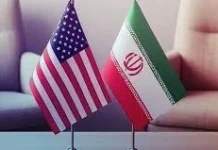Tishwash: Iraq suspends official work next Sunday
Sunday, July 6, 2025, is an official holiday for all ministries and government institutions, coinciding with the tenth of Muharram, the anniversary of the killing of Imam Hussein ibn Ali, the grandson of the Prophet Muhammad and his daughter Fatima al-Zahra, according to the official holidays in Iraq.
The Cabinet Affairs and Committees Department at the General Secretariat of the Cabinet clarified in a statement today, Tuesday, that the holiday came based on the provisions of Article (1/First/C) of the Official Holidays Law (12 of 2024).
Shia Muslims commemorate the martyrdom of Imam Hussein, his family, and his companions in the Karbala massacre, and the commemoration continues until the Arbaeen pilgrimage, forty days after the day of Ashura. link
Tishwash: After being withdrawn for security reasons, a portion of the US embassy staff in Baghdad has returned.
A portion of the US embassy staff in Baghdad has returned to work after being temporarily evacuated due to security concerns surrounding the war between Israel and Iran.
A video recording on Saturday showed two helicopters landing at the US embassy compound in the Green Zone in central Baghdad, with a number of employees disembarking from them.
On June 12, the day before the outbreak of the 12-day war between Israel and Iran, the US State Department ordered the withdrawal of non-essential staff from its embassy in Baghdad and its consulate in Erbil.
A US official confirmed that additional personnel were withdrawn later on June 21 and 22.
On June 21, the US Embassy in Baghdad warned its citizens against traveling to Iraq for any reason.
She explained that both the embassy in Baghdad and the consulate in Erbil have temporarily suspended routine visa services, but remain open for consular services to US citizens.
Some news websites close to armed factions in Iraq had previously reported that all US embassy staff had left the embassy compound last Friday. link
************
Tishwash: Erbil-Baghdad Salary Deal Nearing Finalization; Oil Export Mechanism Key to Agreement
KRG and Baghdad near deal to resume oil exports and release delayed salaries. A KRG delegation met with top Iraqi officials, including Oil Minister Abdul-Ghani. Baghdad may release May salaries this week; debt to oil firms and export terms remain key issues.
The Kurdistan Regional Government (KRG) and the federal government in Baghdad are reportedly on the verge of reaching a pivotal agreement that could pave the way for the disbursement of delayed salaries to public sector employees in the Kurdistan Region as early as this week.
According to a well-informed source familiar with the high-level negotiations, a senior KRG delegation has been in Baghdad for three consecutive days holding crucial meetings with Iraqi government officials.
The source, speaking to Kurdistan24’s Dilan Barzan, stated: “A high-level KRG delegation has been in Baghdad for three days and has held a series of top-level meetings with Iraqi government officials. As of 1:00 PM today, Monday, June 30, 2025, the KRG delegation is scheduled to meet with Iraq’s Oil Minister, Hayan Abdul-Ghani, at the Council of Ministers.”
One of the central issues under discussion is the mechanism for resuming oil exports from the Kurdistan Region, which were halted following a 2023 ruling by the Paris-based International Court of Arbitration.
The same source told Kurdistan24 that while “Erbil and Baghdad have reached a mechanism for exporting Kurdistan’s oil,” several outstanding points of disagreement remain. Nonetheless, expectations are high that a comprehensive agreement will be reached during Monday’s meetings.
Under Iraq’s general budget law, the KRG is required to deliver 400,000 barrels of oil per day to Iraq’s state marketing company, SOMO. However, the current negotiations appear to have adjusted these terms.
The Kurdistan24 source noted: “About 280,000 barrels are to be delivered to SOMO daily, and the remaining 120,000 barrels are to be allocated for internal consumption by both Iraq and the Kurdistan Region.”
A major hurdle yet to be resolved is the significant debt owed to oil-producing companies operating in the Kurdistan Region. This debt—estimated to be close to $1 billion—has become a critical issue following the aforementioned court ruling.
“This debt became a sticking point after a 2023 ruling by the Paris International Court. It is hoped that today’s meeting will also resolve this issue, as the companies are unwilling to resume oil exports without first being repaid,” the source said.
Meanwhile, optimism remains high that the progress achieved thus far will translate into immediate economic relief for civil servants in the Kurdistan Region.
Sabah Sobhi, a member of the Iraqi Parliament’s Oil and Gas Committee, confirmed to Kurdistan24: “Tomorrow, Tuesday, July 1, 2025, the Iraqi Council of Ministers is scheduled to convene. It is expected that a decision will be made during the meeting to release the salaries of Kurdistan Region employees, with payment for the month of May to be issued by the end of this week.”
The potential breakthrough comes after months of tension and repeated negotiations over oil revenue sharing, salary payments, and administrative control, which have strained relations between Erbil and Baghdad. If finalized, the agreement could mark a significant step forward in stabilizing financial relations between the two governments and alleviating public discontent in the Kurdistan Region. link
************
Tishwash: Uptick in Iraq TIR operations injects fresh momentum into trade flows
Amid threats to transport and trade caused by geopolitical conflicts, IRU’s Secretary General put the spotlight on the continued, and expanding, success of the global TIR transit system at Türkiye’s Global Transport Connectivity Forum 2025.
Polish transport operator the Milton Group recently completed a roundtrip journey from Poland to the Gulf Cooperation Council (GCC) region, via Iraq’s newly operational TIR corridors, in 10 days, compared to 24 days for traditional maritime-based multimodal routes.
TIR operations are also starting from departure points such as Mersin, Türkiye, to the GCC via the Iraqi seaport of Umm Qasr. With TIR, this journey is being completed securely in less than a week, which can take up to 26 days if the ship needs to reroute around Africa.
These are just some examples of what is now possible with TIR via Iraq.
Speaking at the Global Transport Connectivity Forum in Istanbul, IRU Secretary General Umberto de Pretto said, “We have seen a remarkable uptick in TIR transport operations through Iraq, connecting Türkiye with GCC countries, and increasingly, with Iran and beyond.
“The implementation of TIR in Iraq is more than a technical milestone, it is a strategic one. It signals Iraq’s determination to be not just a beneficiary of regional trade, but a key facilitator of it.”
At the heart of this ambition is Iraq’s Development Road Project: a transformative initiative that will link the port of Al-Faw in the south to Türkiye and Europe via the north of the country.
“Iraq’s Development Road Project is a statement of intent. A message that Iraq is ready to resume its historical role as a crossroads of civilization, commerce and connectivity. It’s a message that Iraq is now open for business,” said Umberto de Pretto.
“However, the success of this corridor depends not just on highways and other ‘hard’ infrastructure. It also depends on the ‘software’ of international road transport infrastructure, such as harmonised trade systems, smart borders, and efficient customs regimes. This is where TIR brings tremendous value,” he added.
Beyond the Development Road Project, IRU continues to support the Middle East and Central Asia in building more efficient and resilient transit corridors. IRU is actively promoting the digitalisation of TIR, supporting cross-border training and capacity building, and engaging with governments to simplify transport rules and procedures.
“Despite our progress, we must confront the reality that border bottlenecks, long waiting times, and high transit costs continue to burden trade across the region when TIR traffic is not prioritised. To address these issues, IRU strongly promotes the establishment of TIR-EPD Green Lanes at border crossings,” said Umberto de Pretto.
TIR-EPD Green Lanes use IRU’s electronic pre-declaration tool, TIR-EPD, enabling transport operators to submit cargo information electronically to customs prior to arrival. They have already been successfully implemented in Kyrgyzstan, Moldova, Romania, Saudi Arabia, Turkmenistan, the UAE, and Uzbekistan. TIR-EPD Green Lanes accelerate border crossings by up to 92%, reduce the workload for border officials, and provide greater predictability and security in transport planning.
“The TIR system is not a silver bullet; but it is a powerful enabler. When combined with bold initiatives like the Development Road Project and regional leadership from countries like Türkiye, it can unlock the true potential of global connectivity,” concluded Umberto de Pretto. “Let us work together, not just to move goods, but to move forward.” link





